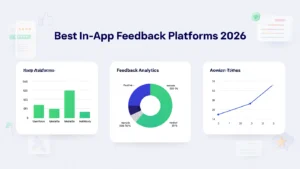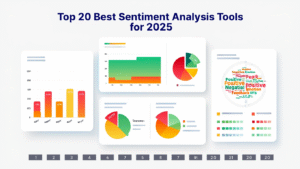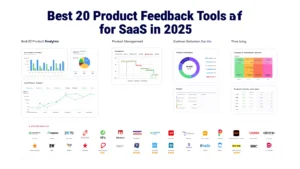The UK events industry is one of the largest in Europe, spanning conferences, trade shows, exhibitions, and corporate hospitality. It contributes not only to networking opportunities but also to the national economy through tourism, travel, hospitality, and employment. Corporate events, in particular, represent a large share of this industry. Reports suggest that the UK events sector generates over £61 billion annually, with corporate events accounting for more than half of this value.
This blog examines corporate event statistics in the UK, breaking down spending patterns, attendance figures, and future trends. By reviewing recent research, we can better understand how corporate events shape both the economy and workplace culture.
The Size of the UK Events Industry
The UK events industry is a major contributor to the economy, with an estimated annual value of £61.65 billion. Out of this, corporate events—including product launches, business conferences, trade exhibitions, and incentive programmes—contribute around £33.6 billion.
This makes corporate events the largest single segment of the UK events industry. According to industry reports, they account for over 50% of the sector’s total value, demonstrating their central role in driving demand for venues, hotels, catering, travel, and related services.
In addition to revenue, the corporate events sector supports hundreds of thousands of jobs, ranging from event organisers and technical crews to hospitality workers and transport providers. The UK’s global reputation for hosting high-quality conferences and exhibitions also strengthens its role as a preferred destination for international business events.
Annual Contribution of Corporate Events

Corporate events are more than networking opportunities; they represent one of the most powerful drivers of business activity in the UK. In 2023, corporate gatherings, including conferences, product launches, trade exhibitions, and company meetings, contributed approximately £33.6 billion to the UK economy.
This spending is distributed across several areas:
- Venues and facilities – conference centres, hotels, and unique event spaces benefit from high demand.
- Hospitality and catering – food and beverage services are a major revenue stream within corporate events.
- Travel and accommodation – domestic and international delegates generate significant income for airlines, trains, taxis, and hotels.
- Event services – production teams, AV technology, security, and marketing agencies form an ecosystem around events.
The ripple effect of this spending extends beyond direct suppliers. For example, trade exhibitions and conferences often lead to follow-up business deals, professional partnerships, and longer-term contracts that further contribute to the economy. According to Cvent, exhibitions and corporate meetings support tens of thousands of jobs across multiple industries, reinforcing their importance to both regional and national growth.
Notably, the corporate events sector plays a vital role in the UK’s reputation as an international hub. Business visitors attending events contribute heavily to local economies—particularly in major cities such as London, Manchester, Birmingham, and Glasgow, which consistently rank as top destinations for conferences and exhibitions .
Recovery of Inbound Business Visitors

International attendance is a cornerstone of the UK’s corporate events industry. After the disruption of the COVID-19 pandemic, the country has seen a strong rebound in business travel and event participation.
In 2023, the UK welcomed 1.5 million inbound business event visitors, with their total spending reaching £1.7 billion. This figure represents a recovery to around 84% of pre-pandemic levels, showing that international business tourism is steadily returning to strength .
London remains the leading destination for international business visitors, but regional cities such as Manchester, Birmingham, and Edinburgh are increasingly capturing market share. This reflects both the UK’s diverse venue offerings and its strong transport infrastructure.
The return of inbound visitors also highlights the UK’s position as a global hub for conferences and exhibitions. Many multinational corporations continue to select the UK as a base for European or global meetings, citing its accessibility, English as a business language, and world-class event facilities.
The recovery is further supported by the efforts of organisations such as VisitBritain’s Business Events Growth Programme, which actively promotes the UK as a destination for international corporate meetings. These initiatives are expected to help the country reach and potentially surpass pre-pandemic levels in the coming years .
Delegate Spending by Event Type
One of the most telling aspects of corporate event statistics in the UK is how much individual delegates spend, depending on the type of event they attend. Recent research highlights clear variations in average spending levels across different event formats:
- Association events – £854 per delegate
- Corporate events – £651 per delegate
- Exhibitions – £326 per delegate
- Incentive trips – £2,113 per delegate
These figures underline several key dynamics:
- Incentive trips are by far the highest-spending category, largely due to the premium nature of travel, accommodation, and experiential activities designed to reward employees or partners.
- Association conferences generate significant per-delegate spending, reflecting longer event durations and greater demand for accommodation and travel.
- Corporate events show strong spending power, particularly when spread across hundreds or thousands of delegates.
- Exhibitions have lower per-capita spend, but they make up for it in sheer volume of attendance, often attracting tens of thousands of visitors.
The distribution of spending highlights the diversity of the events industry. While incentive travel produces high-value economic contributions on a per-person basis, exhibitions and corporate events drive growth at scale by attracting larger numbers of participants. This balance ensures that the UK benefits from both high-value and high-volume segments within its event economy.
Exhibitions and Conferences in the UK
Exhibitions and conferences form the backbone of the UK’s corporate events industry, contributing significantly to both direct spending and long-term economic benefits. In 2024, research showed:
- Exhibitions at major UK venues generated £10.9 billion in economic impact.
- Conferences, meetings, and product launches contributed a further £16.3 billion.
Together, these segments account for almost half of the UK’s events sector value, reinforcing their central role in driving professional networking and knowledge exchange.
Exhibitions, in particular, are recognised as vital platforms for trade, investment, and global business partnerships. Many UK exhibitions attract international delegations, creating opportunities for export growth and strengthening business ties across industries. Meanwhile, conferences and business meetings continue to act as hubs for professional development, industry research, and collaboration.
The geographical distribution of these events also reflects the UK’s strength as a host destination. London leads in both international exhibitions and conferences, but cities like Birmingham, Manchester, and Glasgow have positioned themselves as competitive alternatives, with large-scale venues such as the NEC Birmingham, Manchester Central, and SEC Glasgow hosting major international gatherings each year.
This widespread distribution of events ensures that economic benefits reach across the country, supporting hotels, restaurants, transport, and local supply chains in both metropolitan and regional areas. The scale of exhibitions and conferences thus underscores their importance not just for business, but for the wider UK economy.
Event Planner Preferences for 2025
As corporate events evolve, the preferences of event planners offer valuable insight into where the industry is heading. Surveys indicate that organisers in the UK remain strongly committed to in-person formats, even as virtual and hybrid options remain available.
Research from Live Group reveals that 66% of event planners intend to increase in-person activations in 2025, while only a small percentage plan to scale back face-to-face gatherings. Furthermore, 59% of planners favour in-person-only events over hybrid or digital formats, confirming the enduring importance of physical networking opportunities (LiveGroup, 2024).
These findings are echoed by reports from Hire Space, which show that businesses continue to view live, in-person events as the most effective way to connect with stakeholders, strengthen professional relationships, and build trust. While virtual tools are still utilised for accessibility and cost efficiency, they are now more commonly used as supplements rather than replacements for physical gatherings.
Another emerging preference among planners is the shift towards experience-led events, where activities, wellness components, and networking sessions are carefully designed to increase delegate engagement. These preferences highlight how the corporate events sector in the UK is adapting not only to post-pandemic realities but also to changing cultural expectations around participation and interaction.
Spending Growth in Event Marketing

Corporate events are not only about networking and learning—they also serve as powerful marketing channels. In recent years, companies have increased investment in live events as part of their overall marketing strategies.
Data shows that in Q1 2024, spending on corporate events in the UK rose by 23%, the strongest quarterly growth in over a decade. This surge highlights a renewed confidence in events as high-impact marketing opportunities and reflects businesses’ willingness to prioritise face-to-face engagement with clients, partners, and employees.
The reasons behind this rise are clear:
- Brand positioning – events provide platforms for showcasing products, services, and thought leadership.
- Customer acquisition – exhibitions and conferences remain central for generating leads and building business pipelines.
- Employee engagement – internal corporate events strengthen company culture and retention.
- Content creation – hybrid formats and event recordings expand reach beyond attendees, extending ROI.
With marketing budgets under increasing scrutiny, the strong performance of event marketing indicates that businesses see clear returns on their investments. Moreover, as industries become more competitive, live experiences continue to offer unique value that cannot be replicated by digital campaigns alone.
Looking ahead, analysts expect corporate event marketing to remain a high-growth segment in the UK, with businesses allocating larger shares of their budgets to exhibitions, product launches, and branded experiences.
Well-Being as a Priority in Event Planning
A noticeable shift in the UK’s corporate events landscape is the growing emphasis on employee well-being. Events are no longer designed solely around business objectives—they are increasingly crafted to support mental health, morale, and workplace culture.
Recent surveys show that over half of UK businesses plan to maintain or increase corporate event spending in 2025, citing employee well-being as a primary reason for this commitment.
This focus on well-being is influencing the types of activities and themes included in corporate gatherings. Common trends include:
- Wellness workshops such as yoga, mindfulness, or stress management sessions.
- Outdoor and activity-based events, which encourage movement and team bonding.
- Health-conscious catering, with demand for balanced, nutritious food options.
- Flexible event formats, allowing downtime and relaxation rather than tightly packed schedules.
The shift also reflects a wider cultural change in corporate responsibility. Businesses are recognising that investing in staff well-being can lead to stronger retention, improved productivity, and higher employee satisfaction. Events that acknowledge these priorities are not only valued by attendees but also align with broader human resources strategies.
In this way, corporate events are moving beyond transactional networking opportunities to become integrated tools for workplace culture and employee support. This trend is expected to grow stronger in 2025 and beyond as companies compete to create positive, supportive environments for their teams.
Demand for In-Person Networking
While virtual and hybrid formats surged during the pandemic, the latest research confirms that in-person networking remains the preferred format for corporate events in the UK.
A survey of event planners revealed that 59% favour in-person-only formats, compared with much smaller percentages opting for hybrid or virtual alternatives. Additionally, 66% of planners reported plans to increase their in-person activations throughout 2025, underscoring the strong desire for face-to-face connections.
The reasons for this preference are multifaceted:
- Trust building – personal interaction is still seen as more effective in establishing lasting relationships.
- Networking opportunities – chance encounters, informal conversations, and physical presence create value that virtual formats cannot replicate.
- Engagement levels – delegates are more focused and participatory during live events compared with online sessions.
- Event impact – businesses report stronger outcomes from in-person launches, exhibitions, and conferences.
Although hybrid formats remain useful for expanding reach and accessibility, they are increasingly regarded as complementary rather than primary. The overwhelming preference for in-person networking shows that the UK corporate events industry is firmly returning to physical experiences as its foundation.
This trend also reflects human behaviour: professionals continue to value face-to-face interactions as the most natural and effective way to build meaningful business relationships.
Changing Social Event Formats
Corporate social events in the UK are undergoing a cultural shift, reflecting changing employee expectations and workplace values. Traditional company gatherings often revolved around alcohol, but recent surveys suggest a clear move away from this model.
According to a Financial Times report, fewer than 25% of UK employees now want alcohol served at workplace events. Instead, many prefer alcohol-free formats or activity-based alternatives, such as sports days, creative workshops, or wellness-focused experiences.
The motivations behind this change include:
- Inclusivity – ensuring events are comfortable and accessible to all employees, regardless of personal choices or cultural backgrounds.
- Health and well-being – aligning with broader corporate priorities around wellness and work-life balance.
- Generational change – younger employees are less inclined towards alcohol-centred socialising compared with previous generations.
Companies are responding by offering a wider variety of event formats, from team-building activities to creative challenges and well-being retreats. This shift not only reflects evolving cultural norms but also aligns with the broader corporate trend of using events to strengthen employee engagement and satisfaction.
As the preference for alcohol-free and inclusive gatherings grows, UK corporate events are likely to become more diverse, healthier, and better aligned with modern workplace values.
Conclusion
The latest corporate event statistics in the UK highlight a sector that is not only recovering but also evolving to match new business and cultural priorities. With an annual contribution of more than £33 billion, corporate events remain central to the wider UK events industry, driving economic growth, employment, and international visibility.
The data shows clear trends:
- In-person events remain the dominant preference for both planners and delegates.
- Spending on event marketing is growing faster than at any point in the past decade.
- Employee well-being has become a leading reason for corporate gatherings.
- Alcohol-free and inclusive formats are reshaping workplace social events.
Together, these shifts reveal an industry that is adapting quickly, meeting the needs of modern businesses while continuing to make a powerful contribution to the UK economy. For companies, event planners, and stakeholders, these statistics offer valuable guidance on how to design and deliver corporate events that align with evolving expectations while sustaining their financial impact.
FAQs
1. How much is the UK events industry worth?
The UK events industry is valued at approximately £61.65 billion annually, with corporate events contributing over £33 billion.
2. What is the economic impact of corporate events in the UK?
Corporate events generate around £33.6 billion each year, creating revenue for venues, hospitality, travel, and thousands of supporting jobs.
3. How many international business visitors attend UK events?
In 2023, the UK welcomed 1.5 million inbound business event visitors, spending £1.7 billion, which is 84% of pre-pandemic levels.
4. What is the average delegate spending in the UK?
Delegates spend an average of £854 at association events, £651 at corporate events, £326 at exhibitions, and £2,113 on incentive trips.
5. How much do exhibitions and conferences contribute?
In 2024, exhibitions generated £10.9 billion, while conferences and meetings contributed £16.3 billion to the UK economy.
6. What event formats are most popular in 2025?
Surveys show 59% of planners favour in-person-only events, while 66% intend to increase in-person activations in 2025.
7. How is event marketing spending changing?
Corporate event marketing spend grew by 23% in Q1 2024, the fastest rise in over a decade.
8. Why is employee well-being influencing corporate events?
Over half of UK companies plan to maintain or increase event spending in 2025, citing staff well-being and morale as major reasons.
9. Are employees still interested in alcohol at workplace events?
Less than 25% of UK employees want alcohol at company events, with many preferring alcohol-free or activity-based gatherings.
10. Which UK cities are leading in hosting corporate events?
London remains the leader, but cities like Manchester, Birmingham, Edinburgh, and Glasgow are also key destinations for large-scale corporate events.





